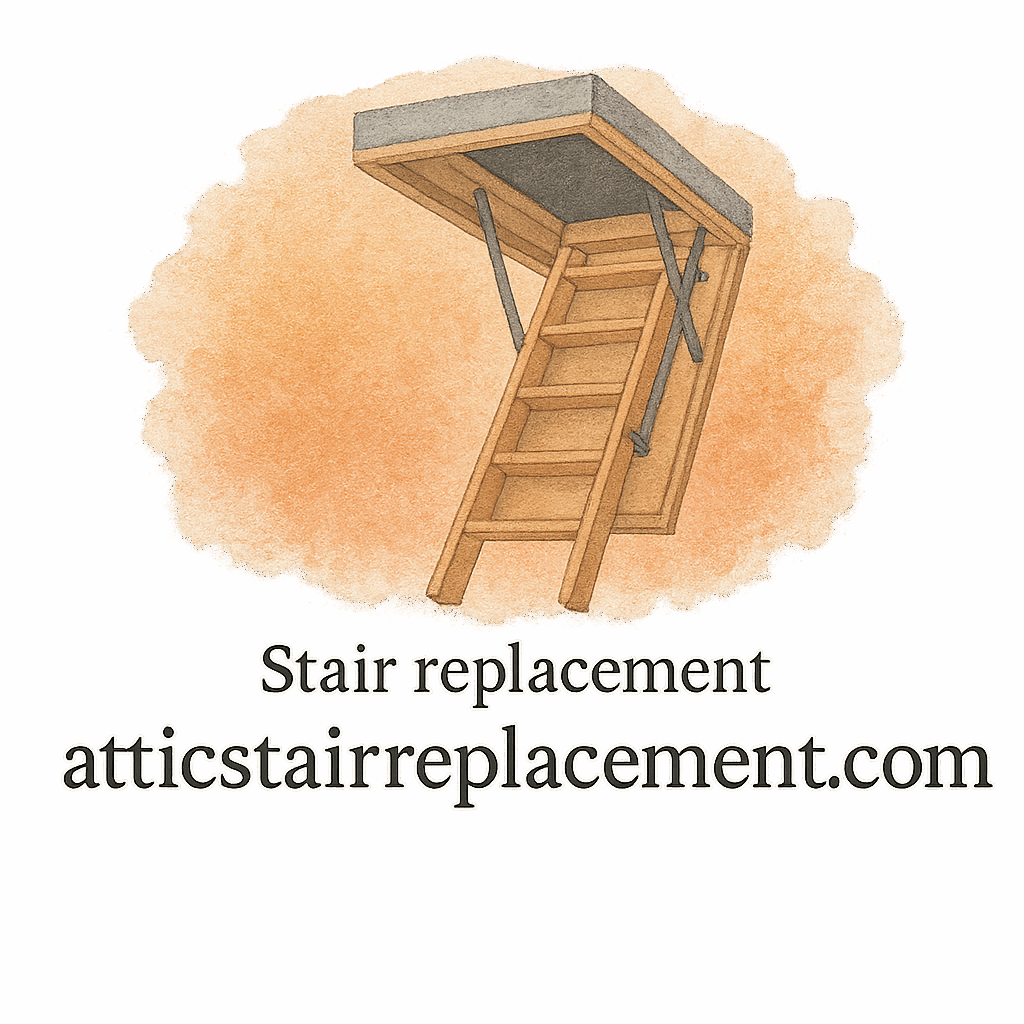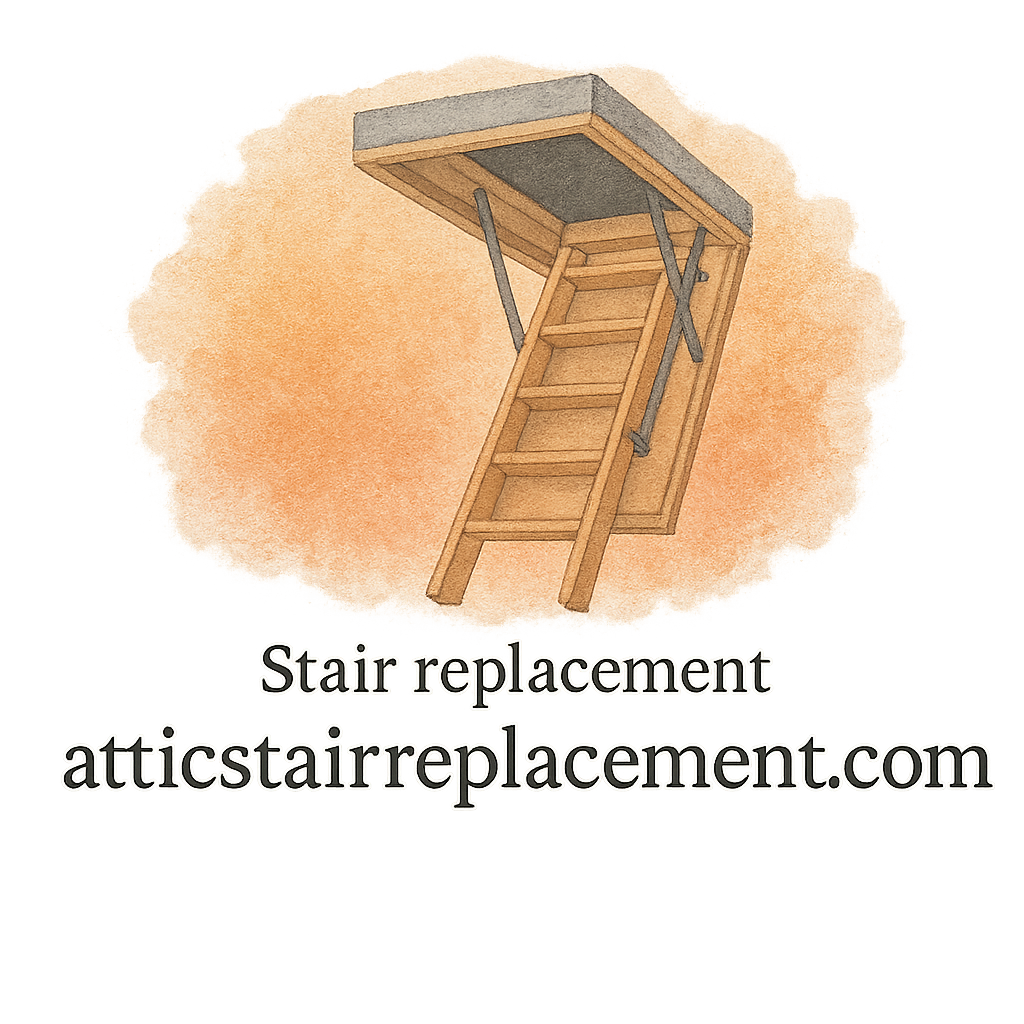Introduction
Ever wrestled with a stubborn attic stair that creaks like it’s about to collapse? Or maybe you’re tired of chilly drafts sneaking into your hallway every winter? If any of that sounds familiar, you’re not alone. These are just a few of the everyday annoyances—and safety hazards—that homeowners face with outdated attic staircases.
Fortunately, there’s a simple fix: attic stair replacement. This home improvement upgrade doesn’t just solve annoying problems—it enhances your home’s comfort, safety, and value. In this article, we’ll explore five common issues solved by attic stair replacement and how making this one change can dramatically upgrade your entire living experience.
Let’s climb into it (pun intended)!
1. Safety Hazards from Old or Wobbly Attic Stairs
Worn-Out Materials and Unstable Steps
Old attic stairs are often made from materials that just don’t age well. Think cracked wood, warped metal, or worn-out hinges. These components make your stairs a ticking time bomb—one wrong step and boom, twisted ankle or worse.
Replacing those stairs with a new, heavy-duty model ensures a durable, secure structure that holds up to daily use. No more creaks, wobbles, or holding your breath every time you use them.
Explore more about choosing strong and secure materials in our expert advice section.
Structural Weakness and Risk of Collapse
Some old attic ladders are barely hanging on—literally. Weak joints, rusted screws, and sagging frames are recipes for disaster. New attic stairs offer enhanced engineering, better materials, and job-quality builds that reduce risks significantly.
Check out our guide to avoiding common mistakes when choosing a replacement ladder.
2. Poor Energy Efficiency Due to Drafts
Gaps Around the Stair Frame
That chilly breeze? It’s probably slipping through the gaps around your attic stair hatch. Poorly sealed or ill-fitting doors can allow air leakage that throws your HVAC system into overdrive, hiking up energy bills.
Modern attic stair systems are designed with tight seals and proper insulation to prevent drafts. Some even feature insulated doors for maximum energy efficiency.
More on improving your home’s energy use is available at our home improvement hub.
Outdated Insulation Solutions
If your current setup dates back a decade or two, it’s likely using outdated or minimal insulation. Today’s attic stairs come with options that fit modern home renovation standards and building codes.
Find product insights in our comprehensive product reviews section.
3. Limited Accessibility and Convenience
Difficult to Open or Close
Let’s face it—wrestling with a stiff or misaligned attic ladder is a pain. Maybe the springs are worn out, or the hatch is too heavy. It’s especially frustrating when you’re carrying something bulky and need both hands.
Newer models feature easy-glide mechanisms, lightweight materials, and ergonomic designs that make accessing your attic smooth and hassle-free.
Get step-by-step help from our DIY installation guide.
Not Suitable for All Family Members
Older attic stairs can be risky or completely inaccessible for seniors, kids, or anyone with mobility issues. By upgrading to a safer, more user-friendly option, you’re making your home more inclusive for everyone.
Learn more in our attic stair safety guide.

4. Lack of Storage Optimization
Inadequate Access Discourages Use
You’ve got a whole attic up there, but if the stairs are unsafe or inconvenient, chances are it’s collecting dust instead of storing boxes. A secure and easy-to-use stairway turns your attic into valuable real estate.
A small investment in replacement unlocks big-time storage potential.
Check our attic storage tips for inspiration.
Smaller or Obstructed Openings
Older installations often come with tiny or awkwardly placed openings. Replacing the stairs gives you the chance to adjust the size and location for better usability and flow.
Explore our full attic remodel guide for ideas.
5. Outdated Aesthetic or Poor Home Value
Visual Mismatch with Interior Design
If your attic stairs look like they belong in a horror movie, they’re not doing your home any favors. Scratched paint, rusted metal, and clunky hardware clash with modern interiors.
New stair models offer sleeker profiles, cleaner finishes, and even custom design options. It’s like upgrading from VHS to streaming—night and day.
Negative Impact on Property Appraisal
Believe it or not, that old attic access can affect your home’s value. Appraisers take note of safety, efficiency, and design. Upgraded stairs tell a better story and can positively influence resale value.
Read more on boosting your appraisal score with smart upgrades in our home improvement blog.
How Attic Stair Replacement Fixes These Issues
DIY vs. Professional Installation
While it might be tempting to tackle the job yourself, attic stair replacement isn’t always a simple DIY project. You’ll need to know about load-bearing structures, ceiling joists, and precise measuring.
If you’re a hands-on type, we’ve got you covered with our full DIY attic stair installation guide. But if you’d rather avoid costly mistakes, consider hiring a trusted contractor.
Choosing the Right Model for Your Needs
Not all attic stairs are created equal. You’ve got aluminum, wood, telescoping, folding, and even electric models. Some are built for heavy-duty use, others for compact spaces. Think about your ceiling height, frequency of use, and weight capacity.
Need help choosing? Start with our expert attic stair replacement guide.
Bonus Tips for Long-Term Success
Regular Maintenance and Inspection
Like any other part of your home, attic stairs need regular TLC. Tighten loose bolts, check for cracks, and oil any squeaky hinges. A little maintenance can save a lot of headaches—and money.
Head to our maintenance and repair section for a full checklist.
Follow Manufacturer’s Care Instructions
Each stair model has its quirks. Read the manual. Seriously. Following the care instructions ensures longevity and preserves warranties. It’s like brushing your teeth—skip it, and you’re asking for trouble.
Explore tips on stair care at our attic care section.
Final Thoughts
Attic stair replacement might not sound glamorous, but it’s one of those upgrades that solves a dozen problems with one smart decision. From safety and energy efficiency to usability and property value, a new attic stair is an investment that pays off every time you climb up (or don’t fall down).
And the best part? You’re not just fixing something—you’re future-proofing your home.
For more tips, advice, and reviews, check out our full site at atticstairreplacement.com.
FAQs
1. How do I know it’s time to replace my attic stairs?
If your attic stairs wobble, squeak, or show signs of wear and tear, it’s probably time. Safety is the top reason to replace them.
2. Can I replace attic stairs myself?
Yes, if you’re handy and comfortable with basic carpentry. Otherwise, consider a professional. Our DIY installation guide can help you decide.
3. What’s the average cost of attic stair replacement?
Prices range from $200 for basic DIY models to over $1,000 for high-end or professionally installed options.
4. Are new attic stairs more energy-efficient?
Absolutely. Modern models often include insulated hatches and tight seals to prevent drafts.
5. Can I customize the size of my attic opening during replacement?
Yes! This is a great time to resize or reposition for better access or usability.
6. How long do attic stairs last?
With proper care, high-quality attic stairs can last 15–25 years or more.
7. Where can I find the best attic stair reviews?
Check our curated reviews section at product reviews for top-rated picks and comparisons.


